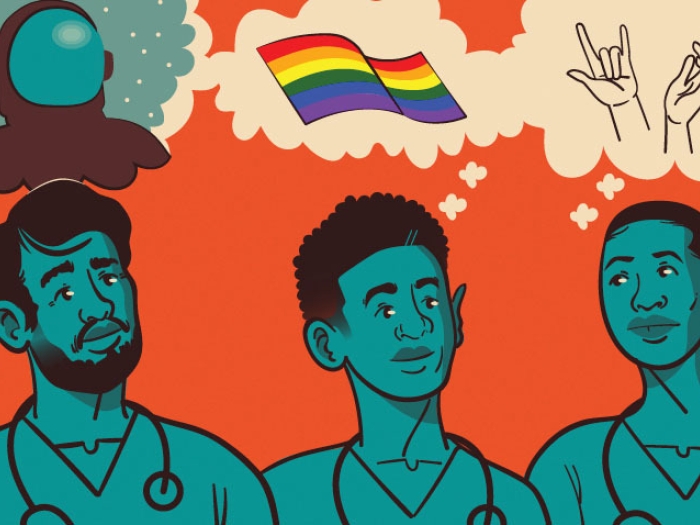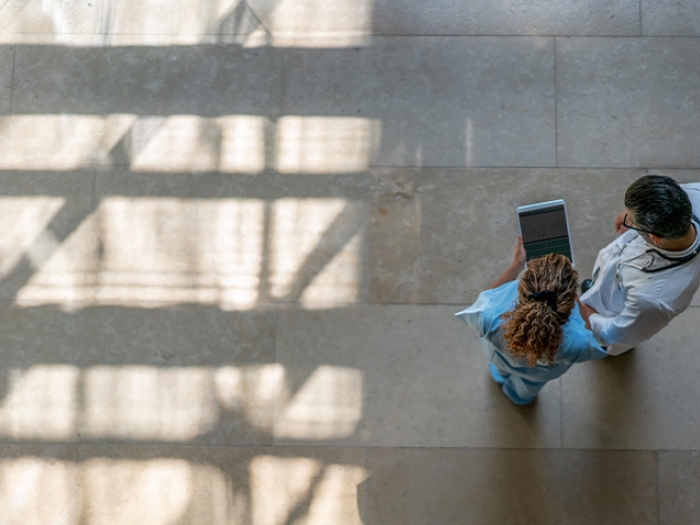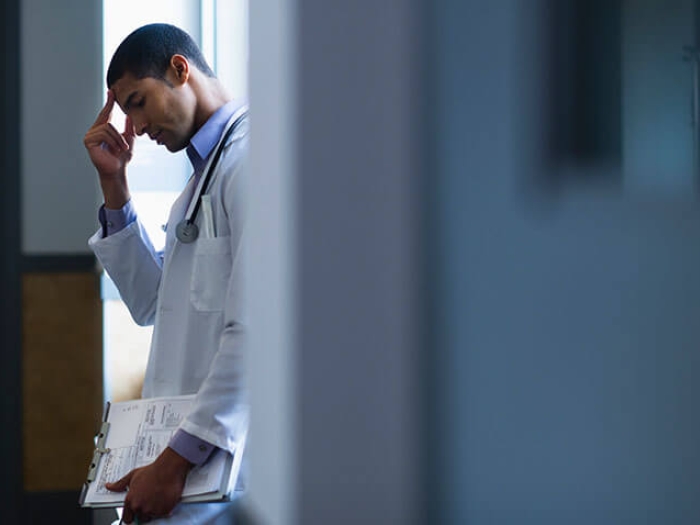Doctors of Tomorrow pairs first-year medical students with ninth-grade mentees to foster diversity in medical fields.
8:00 AM
Author |
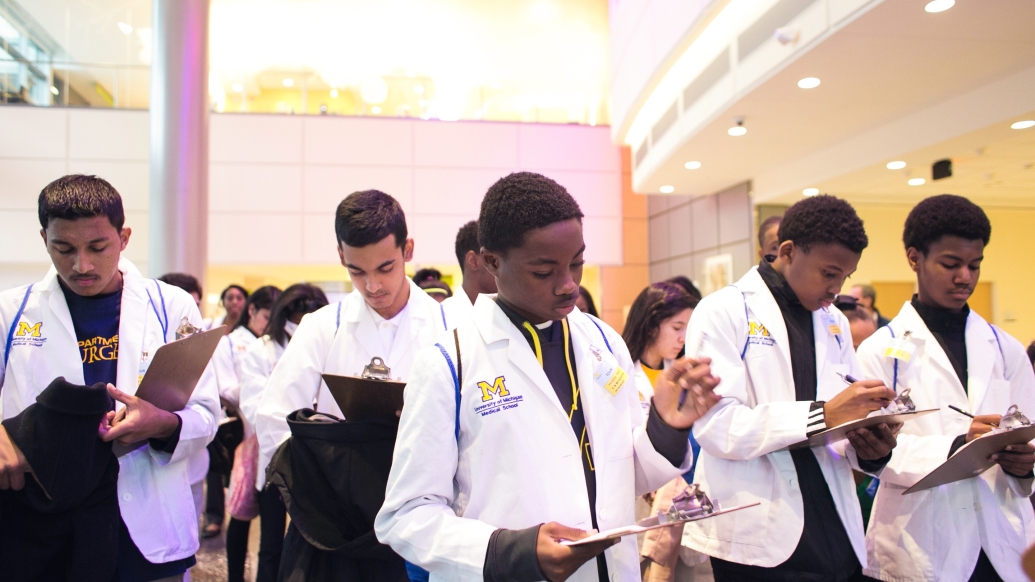
As first-year students at the University of Michigan Medical School start their education, Jonathan Finks, M.D., asks them to take someone along: a high school freshman committed to being in their shoes one day.
The pairings are the heart of Doctors of Tomorrow, a program that aims to change the face of medicine by inspiring under-represented students' interest in science and medicine. It started four years ago with a partnership between U-M and Cass Technical High School, a racially diverse magnet school in downtown Detroit.
Every ninth-grader who participated in the first class of Doctors of Tomorrow in 2012–13 is headed to college, a first step toward one day becoming a doctor. Friendships have grown and aspirations changed through the program.
Take Jordan Gregory, 18, who sees a future that may one day mean halting neurodegenerative diseases. Finks couldn't be prouder.
An associate professor of surgery at the U-M Health System, Finks explains the program's not-so-steady start, and where he hopes the program is heading.
As soon as they came in and put on those white coats, something changed.Jonathan Finks, M.D.
You offered a reminder to the crowd at this year's Doctors of Tomorrow celebration.
Finks: It was an exciting evening, but I did address that the reason the program started was a lack of diversity among health care providers. While black Americans make up 13 percent of the U.S. population, just 6 percent of today's practicing physicians are black. The numbers are not much better for Hispanic-Americans. The reasons are varied, but I think part of the problem is we have not done a good enough job of finding, recruiting and preparing black and Hispanic students for medical school.
What's the program been like for you and the students?
Finks: On their first trip to Ann Arbor, I was enthusiastic, but completely clueless on how to work with high school students. When the freshmen stepped off the maize and blue University of Michigan bus, they appeared — as adolescents often do — tired and even sullen. But as soon as they came in and put on those white coats, something changed.
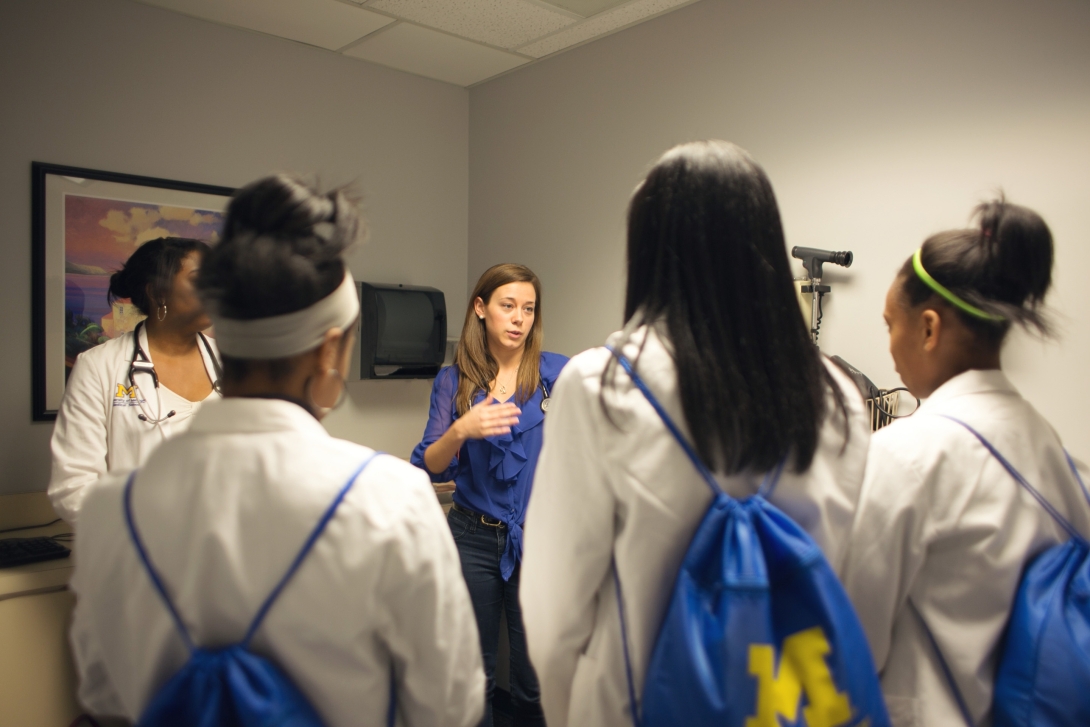
Give us an idea of what the students are doing during their monthly visit to the medical campus?
Finks: Once here, they're totally engaged in learning clinical exam skills, visiting the anatomy lab, listening to lectures on global health, shadowing physicians in the clinic and practicing laparoscopic surgical skills in the Clinical Simulation Lab. During clinical skills day, they learn to check vital signs, reflexes, and heart and lung sounds, and discover how doctors use those physical exam signs to diagnose disease.
Over the course of the year, students also work in groups on a capstone project. Under the guidance of their medical student mentors and in conjunction with a community service organization in Detroit, the students work on a community service project designed to address a public health problem affecting Detroit. They then present their work at a poster symposium at Cass Tech at the end of the year.
What's next for the program?
Finks: The issue of racial diversity in health care remains a problem nationally and contributes to disparities in health care delivery. Our hope is that the Doctors of Tomorrow program can provide a guiding framework for other U.S. medical schools to increase racial diversity by connecting with the bright minds in their states and neighborhoods. One pipeline program in Detroit may not necessarily change things, but pipeline programs at the more than 140 medical schools across the country can make a difference.

Explore a variety of healthcare news & stories by visiting the Health Lab home page for more articles.

Department of Communication at Michigan Medicine
Want top health & research news weekly? Sign up for Health Lab’s newsletters today!
